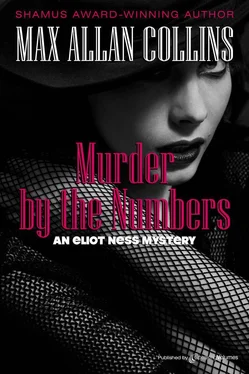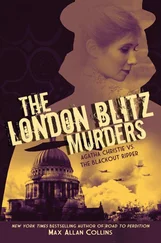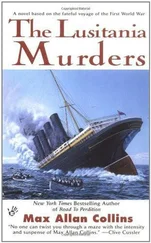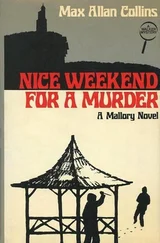Max Collins - Murder by numbers
Здесь есть возможность читать онлайн «Max Collins - Murder by numbers» весь текст электронной книги совершенно бесплатно (целиком полную версию без сокращений). В некоторых случаях можно слушать аудио, скачать через торрент в формате fb2 и присутствует краткое содержание. Жанр: Криминальный детектив, на английском языке. Описание произведения, (предисловие) а так же отзывы посетителей доступны на портале библиотеки ЛибКат.
- Название:Murder by numbers
- Автор:
- Жанр:
- Год:неизвестен
- ISBN:нет данных
- Рейтинг книги:4 / 5. Голосов: 1
-
Избранное:Добавить в избранное
- Отзывы:
-
Ваша оценка:
- 80
- 1
- 2
- 3
- 4
- 5
Murder by numbers: краткое содержание, описание и аннотация
Предлагаем к чтению аннотацию, описание, краткое содержание или предисловие (зависит от того, что написал сам автор книги «Murder by numbers»). Если вы не нашли необходимую информацию о книге — напишите в комментариях, мы постараемся отыскать её.
Murder by numbers — читать онлайн бесплатно полную книгу (весь текст) целиком
Ниже представлен текст книги, разбитый по страницам. Система сохранения места последней прочитанной страницы, позволяет с удобством читать онлайн бесплатно книгу «Murder by numbers», без необходимости каждый раз заново искать на чём Вы остановились. Поставьте закладку, и сможете в любой момент перейти на страницу, на которой закончили чтение.
Интервал:
Закладка:
Max Allan Collins
Murder by numbers
PROLOGUE
CHAPTER 1
Toussaint Johnson, a big loose-limbed man in a baggy light brown suit, the dark brown band of a shoulder holster cutting under a blood-red tie across a cobalt-blue shirt, looked headless in the black night. That was how black he was. Under a misshapen charcoal fedora, his kinky hair was cut back to the scalp and his face had a harsh, angular, African look; his dark-brown eyes, under deceptively sleepy hoods, were as piercing as a well-placed gunshot.
Johnson, a detective working out of the so-called "Roaring" Third Precinct on Cleveland's east side, was ambling across 89th Street, having left his Chevy in the parking lot of the Antioch Baptist Church up the block. It was a pleasant, cool Monday night, approaching ten o'clock, and he was on his way to see Rufus Murphy, the numbers king.
Fifty-five years old, fat and sassy, Rufus Murphy lived in a well-tended three-story yellow wood-frame house on the east side of this residential street. The Negroes who lived around here, on the edge of the white working-class neighborhood known as Hough, were primarily professionals-doctors, lawyers, teachers-but then Murphy was a professional of sorts himself.
The numbers game-actually games, namely "policy" and "clearing house," known derisively in some quarters as "the nigger pool"-was big business in the black ghetto of Cleveland. Both policy and clearing house were illegal lottery games, the former based on a drawing of numbered balls from a rotating drum, the latter on the daily stock exchange numbers in the newspaper.
An army of collectors, known more commonly as runners, solicited players among the denizens of black Cleveland, middle class and poverty stricken alike, giving them slips with their chosen numbers, keeping duplicate slips. Working for ten percent of what they collected, and tips from winners, the runners turned in their slips and cash to a controller. Each controller had charge of fifty or so runners, and kept five percent of the day's haul before turning the balance over to an operator, or "king," like Rufus Murphy, who was one of the Big Four numbers kings in the city.
In black Cleveland, Murphy was anything but a criminal. Affable, approachable Murphy was a symbol of financial stability in the midst of the Depression. He owned taverns, restaurants, and a food market; he provided backing for other Negro entrepreneurs; he was a patron of local charities, setting up college scholarships for outstanding Negro students. Ministers, civic leaders, and politicians had reason to smile upon Rufus Murphy, whose pocketbook, after all, smiled on them. He-like the numbers game-was a community institution.
In a few short years, Toussaint Johnson had become an institution in the Roaring Third, himself. Johnson was one of the city's three black detectives-out of a dozen colored cops total-and was tougher than a nickel steak and honest as a mother's love. He carried a custom-made nickel-plated. 38 with a six-inch barrel under either arm; it was said that a man once fainted at the sight of the shiny cannons. Thirty-four years old, Johnson was murder on purse snatchers, burglars, con men, and muggers; he was bloody murder on any whites working any racket on the black streets.
He crossed the long, gently sloping lawn, past the neatly trimmed shrubbery hugging Murphy's house and went to the side door near the freestanding two-car garage at the end of a paved drive. He knocked once, sharp and hard, like a rifle shot. He waited. He did not knock again.
Finally the door opened and Rufus Murphy, all five-foot-eight and two-hundred-fifty pounds of him, stood in the doorway. Murphy's freckled brown face was split in a wide smile in which several gold teeth winked; his head was round as a cantaloupe and just as bald. He was wearing a white apron over a dark green silk shirt, its sleeves rolled up to expose brown arms above catcher's-mitt hands on which several massive gold, diamond-set rings resided, including one bearing a garish Elks Lodge insignia; his pants were a shiny olive gabardine above square-toed yellow pigskin Florsheim bluchers.
Spreading his arms like a pudgy messiah, Murphy said, 'Toussaint, my man, come in, come in…"
He opened the door and Johnson lumbered in, taking off his hat.
"Smells mighty fine," the detective said, glancing around the large modem red-and-white kitchen. Several pots and pans were steaming on the stove, but the enamel-topped table, partly covered by a red-and-white checkered cloth, was already set for two with two covered serving dishes and an overflowing platter of cornbread.
"I sent Mamie to bed," Rufus said, referring to his wife of twenty-odd years, an ex-showgirl who was pleasantly plump now. He seemed proud of himself. "I cooked this mahse'f."
"I hear you was the best cook the Santa Fe Railroad ever had," Johnson conceded with a mild smile.
Rufus gestured for Johnson to sit down, which the detective did. The pudgy numbers boss uncovered the dishes and said, "He'p yourself, son," and Johnson filled his plate with well-seasoned boiled collard greens, okra, and pig's feet from the larger of the two dishes, and steaming black-eyed peas from the other, then speared a hunk of cornbread off the platter.
From the refrigerator Rufus got two sweating bottles of Pabst Blue Ribbon beer, opened them both, gave one to Johnson. Rufus immediately drained his beer, then popped himself open another.
The two men sat and ate and drank in silence for several minutes.
"Done yourself proud, Mr. Murphy."
"Rufus, son. After all these years, ain't we friends enough for first names?"
Johnson swallowed a slimy bite of okra, savoring it before saying, "This is business. Your hospitality is 'preciated. But first names ain't for business."
Rufus sighed. His muddy brown eyes were bloodshot. He wiped a piece of cornbread through his black-eyed peas and munched it almost absently, saying, with his mouth full, "So it's a business call, then?"
"You know why I asked to see you."
"It ain't payday, is it?"
"That unkind, Mr. Murphy. And uncalled for."
Rufus shook his head; he seemed sad. "You're right. Sure I know why you're here. But maybe I'm not a worryin' man like you is, Toussaint."
"I'm not worried, Mr. Murphy. It ain't my feet that's to the fire."
The features of Rufus's face clenched like a fist. "The great 'Two-Gun' Toussaint, afraid of some goddamn dago pissant bastards… it ain't like you."
Johnson didn't flinch at the insult. He said, "I ain't afraid. And I ain't worried. But you ought to be."
Last week, a quartet of white hoodlums, led by Little Angelo Scalise himself, broke up a Murphy-backed policy drawing, brandishing revolvers, confiscating the small drum-shaped container and its seventy-eight consecutively numbered balls, terrorizing the handful of hired help and the hundred or more patrons.
"Tell your fat boss," Little Angelo had said, "he can get his equipment back by seein' Black Sal."
Black Sal was white. Or dago white, anyway: Salvatore Lombardi, one of the big boys of the Mayfield Road mob, who controlled bootlegging, gambling, and prostitution everywhere in Cleveland but the black ghetto.
"So fuckin' what?" Rufus said, talking through the fog of the steaming dishes between them. "Little Angelo and his tally goons been making ugly noises for months. Nothing come of it. This ain't their side of town. They don't understand it."
"They don't got to understand nothin'. All they got to do is get rid of you and hire some willin' niggers."
Rufus stood up and slammed his hand flat on the table; the dishes rattled. "They ain't gettin' rid of me. I ain't goin' nowhere!"
Читать дальшеИнтервал:
Закладка:
Похожие книги на «Murder by numbers»
Представляем Вашему вниманию похожие книги на «Murder by numbers» списком для выбора. Мы отобрали схожую по названию и смыслу литературу в надежде предоставить читателям больше вариантов отыскать новые, интересные, ещё непрочитанные произведения.
Обсуждение, отзывы о книге «Murder by numbers» и просто собственные мнения читателей. Оставьте ваши комментарии, напишите, что Вы думаете о произведении, его смысле или главных героях. Укажите что конкретно понравилось, а что нет, и почему Вы так считаете.












